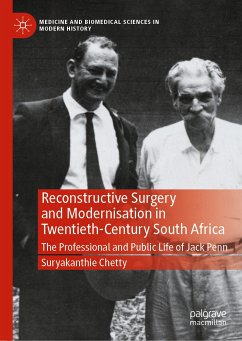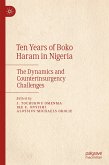Penn's career is contextualised by modernisation which was a significant feature of twentieth-century South Africa. It was linked with race from the inception of the state in 1910 with racial segregation and paternalism. Penn's work during the Second World War was part of a "modernist" bent by the state under Jan Smuts to take the lead in promoting science and technological development - which continued during apartheid. Modernisation was also fluid with state priority shifting between the two poles of development and security as apartheid policies were met with hostility both within the state and beyond its borders. Within the context of decolonisation, increasing black urbanisation required a balancing act on the part of the state to uphold the ideology of racial distinction while simultaneously addressing economic challenges - and this was reflected in the reform initiatives under Botha.
Plastic and reconstructive surgery as evident in the work of Jack Penn is intertwined with this narrative of apartheid, modernisation and reform. It demonstrated Western prowess, with medicine and development a perceived bulwark against Communism. It also served as a means for the modernising apartheid state to initiate, maintain or enhance alliances with other states in the facing of mounting isolation and international condemnation.
The career of Jack Penn, then, is a lens through which the contradictions, complexities and anxieties of twentieth-century South Africa are exposed.
Suryakanthie Chetty is Senior Lecturer at Stellenbosch University, South Africa. She published her book, Africa Forms the Key: Alex Du Toit and the History of Continental Drift, with Palgrave in 2021.
Dieser Download kann aus rechtlichen Gründen nur mit Rechnungsadresse in A, B, BG, CY, CZ, D, DK, EW, E, FIN, F, GR, HR, H, IRL, I, LT, L, LR, M, NL, PL, P, R, S, SLO, SK ausgeliefert werden.









